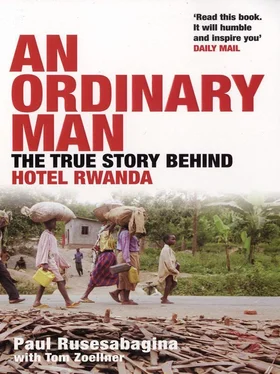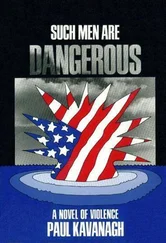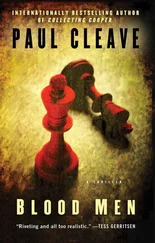Nothing could ever be the same for us again.
My family and I stayed in the manager’s cottage at the Diplomates while Rwanda went about the slow process of trying to rebuild itself. Work is an excellent place to lose yourself, and I proceeded to do just that. My bosses at Sabena had been satisfied with my performance during the genocide, and I was allowed to keep my job as the general manager of the Hotel Diplomates. Business was booming, of course. Rwanda ’s expatriate class had swelled once again now that the terror was over.
There was a change in my employment in February 1995. The Sabena Corporation was planning to merge with Swissair, but a condition of the deal was that Sabena would renovate all of its existing hotels. They were then forced to break their management contract with the new government of Rwanda, which was the legal owner of the Diplomates. This put me in a difficult spot. I thought about asking for another job in the corporation, but I enjoyed too much the demands of day-to-day management-the attending of the thousand little details that make a hotel the welcoming place that it is. This was my deepest image of myself. I was born to be a site manager, not a suit in a conference room. And so Sabena and I parted on friendly terms.
But I found a way to stay on as the manager of the Diplomates. With the Belgian corporation now gone the government needed someone experienced to run the hotel and I brought them a proposal that allowed me to stay on as manager while still living on the property. My wife opened a pharmacy downtown and we managed to make a decent living together while Rwanda tried to reinvent itself as a new nation.
The government got rid of those wretched ID books and made it taboo for anyone to be officially labeled as a Hutu or a Tutsi-a change that I and millions of others applauded. Informal “orphanages” spontaneously opened up all over the country, often run by teenagers; few adults were left to take charge. An entire generation of young people was told never to mention their ethnicity to anyone because it could mark them for death in the changing currents of history. Rwandan exiles from all over the world, some of whom hadn’t seen their country for thirty years, flooded back inside. There were more than three-quarters of a million of them, which meant there were roughly three new settlers for every four people who had been killed in the genocide, a ghoulish impersonal replacement. The exiles were mostly from Uganda, Burundi and the Congo, but they came from the United States and Canada and Belgium and Switzerland as well. Prisons, meanwhile, were jammed full of people suspected of having killed their neighbors.
The economy, like the infrastructure, was in a shambles. An entire year’s coffee crop had been lost. What little industry there was had been destroyed. But international aid helped get the power back on, and Rwandans have always been creative when it comes to making money. There was a brief period of Wild West capitalism, in which it became possible to grow very rich transporting foodstuffs and goods from Uganda. Anybody with a working truck could make fantastic profits hauling bananas and beans.
My own life, meanwhile, became complicated and a little frightening. It was with profoundly mixed feelings that I returned to the streets where I had seen the bodies of my friends and neighbors stacked up like garbage. Their bloodstains had washed away in the autumn rains, but I always took note of the spots where I had seen them lying. The Mille Collines no longer smelled like a refugee camp, but it was hard to walk its halls without feeling that palpable sense of impending murder. The role I had played in saving those people had not been forgotten, and it was not appreciated in many quarters. I had seen too much and knew too many names. There were many people in the new government who had been complicit in the genocide and who feared any surviving witnesses from that time. They were political survivors, hard men, dangerous when threatened. Every time I saw a stranger scowl in my direction I tried to memorize his face in case I had to find him later if he harmed my family.
Others had it in for me for economic reasons. The hotel management contract I had received was seen as a cash cow by some of the thugs close to the new government. One very bizarre incident at the hotel convinced me I might be better off living someplace else. A friend of mine came by the hotel one evening with an Army sergeant. The sergeant was highly agitated and it became clear that my friend was not there by choice. I tried to calm things down and offered them a beer, but the sergeant would not sit still for long. He took out his pistol and told me: “We know you have stolen computers in your house!”
“That is foolish, ” I told him.
“Then you will not have any problem showing me your house?”
“All right, ” I said. “This is foolishness, but if you insist, come look.”
The three of us walked into the next room. Our housemaid was inside, and when she saw the Army sergeant’s pistol, she screamed.
“He is going to kill you!” she said, and without thinking, I dashed toward the sergeant and shoved him hard into the wall. He dropped his gun. I supposed I could have grabbed it off the floor and pointed it at him, but my instinct told me otherwise. I raced out into the parking lot and toward the Army post next door-the place, as it happened, where the ten Belgian soldiers had been killed by torture in the opening hours of the genocide. There is hardly a patch of ground in Rwanda, of course, where somebody was not hacked to death in 1994. I got the attention of some of the soldiers on guard and told them I had been threatened by the sergeant. They took him away and I learned that he was attached to the Department of Military Intelligence, our nation’s version of the CIA.
The next day, an influential Army major named Rwabalinda came in to see me about the incident.
“Mr. Manager, that man did not have a real gun. It was a toy.”
I could not believe what I was hearing. If the major was concocting a story about what had happened it meant that there were some high-ranking people who wanted to see me gone.
“Listen, major, ” I told him. “I am not a solider and I don’t even like guns, but I know the difference between a real gun and a toy. That sergeant was carrying a real gun.”
“It was not. This is what our investigation has shown.”
I thought it best to keep a stone face. I thanked the major and he left. Shortly thereafter a friend high up in the government, who I should not identify, came to my house and made plain what I already knew to be true.
“Paul, I have heard they want to kill you so that other business interests can take over the management of the Hotel Diplomates, ” he said. “But the object now is not to kill you out in the open. It is too dangerous politically. They will pretend they are arresting you and taking you to prison, but you will disappear and your body will never be found.”
The choice now seemed clear to me. I could open up my treasured black binder once again and start dialing all my Army friends for protection. But it would be like living the genocide all over. Years ago I had looked forward into my future as a church pastor and seen nothing but rural banality waiting for me. Now I imagined my future as a Rwandan hotel manager and saw nothing but constant fear and an eventual knock on the door after midnight. I loved my job and I loved my country, but not enough to die for them and leave my children without a father. My family and I quickly flew to Belgium and applied for political asylum. We had remained in our own country slightly more than two years after the genocide.
We may have left Rwanda, but Rwanda will never leave us. Those thousand hills were imprinted inside us forever. There are times today when I walk down a street and smell a fire burning in a hearth and instantly I am back in Nkomera, and it is evening, and my father is coming back from the village with a butchered goat on his back and my mother has lit the fire for supper and the shadows of the banana trees are long on the hillsides.
Читать дальше











![Paul Finch - A Wanted Man [A PC Heckenburg Short Story]](/books/702381/paul-finch-a-wanted-man-a-pc-heckenburg-short-sto-thumb.webp)
